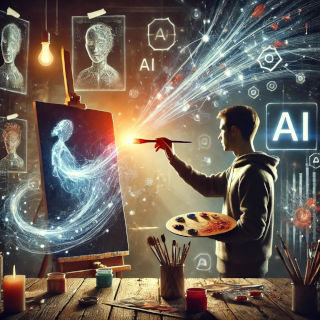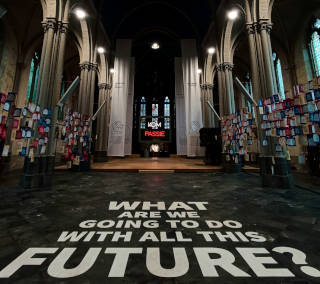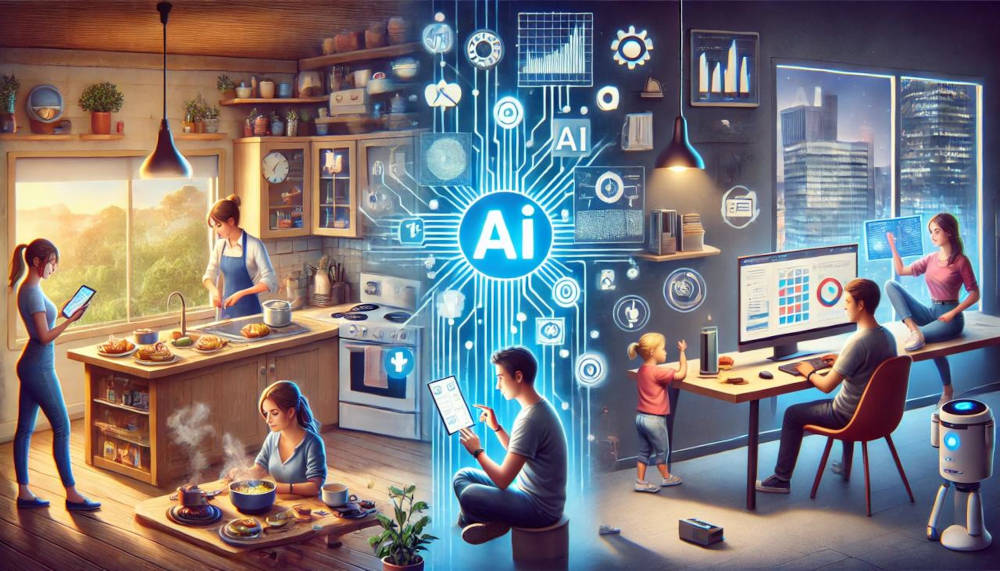Dear Friend,
The team is getting ready for the AMA on Monday, Feb 17th at 6.30 PM IST with Tanuj Bhojwani and Anmol Shrivastava on how to make AI work for you. You would have received the invitation in your inbox. ICYMI, you can register here.
And to give you a head start, we’ve put together a selection of stories that show us how and why to begin experimenting with AI tools.
1. AI’s Best-Kept Secret: It’s Not the Tools, It’s You
By Anmol Shrivastava

What’s the simplest way to start using AI without wasting time? If that question has been on your mind, Anmol Shrivastava has a suggestion: “I am reminded of another beginner’s moment in my life — the day my father taught me to cycle. All he did was put me on the seat and asked me to have fun, telling me I shouldn’t worry about falling, since he’s got my back.
Imagine if my father had given me an exhaustive lecture on cycling, how gears work, what the best posture for aerodynamics is, how the world of transportation works before letting me try it out …
We spend so much time discussing which AI model is cutting-edge, how AI will impact geopolitics, or how to craft the perfect prompt. But too often, we forget the most important thing: actually using the tool and experimenting with it.”
Earlier this month, Anmol rolled up his sleeves and experimented with Zoom’s built-in AI Companion feature and ChatGPT to get a maximum experience from the Founding Fuel Masterclass on the World in 2025. He talks about his experiments and the different ways he’s using AI to good effect: to learn, to co-create software, to understand contracts, to learn complex things.
2. GPT-4 and ChatAI could be your digital genie
By Charles Assisi

If you want another practical pointer on how to get started, while minimising AI’s hallucinations, this one is a good primer. Charles Assisi put it together in November 2023 using GPT-4. “We set the output to ‘precise’ and insisted that the language be accessible and slightly humorous. To ensure the software isn’t making things up, we insisted it provide citations. We cross-checked parts where citations were available. Some minor edits later, this newsletter was ready for dispatch.”
He (the AI?) goes on to describe how these tools could be your personal librarian and a digital assistant that can translate, summarise, and even help you learn a new language.
3. AI natives are here. Are you keeping up?
By Kavi Arasu

Are you adapting, exploring, or waiting for change to push you forward?
In this article, Kavi, a talent and organisational change specialist, tells us about Hudhafaya Nazoorde aka HudZah, who built a nuclear fusor with the help of an AI assistant, Claude, right inside his rented house in San Francisco.
“HudZah is an innovator. He hasn’t waited for AI to become mainstream. He has explored, experimented, and pushed boundaries, using AI to do what few would even attempt… He sees AI not as a tool to be feared but as an ally to be mastered. That’s what sets innovators apart,” Kavi writes. “AI natives, like HudZah, navigate the digital world with an ease that others struggle to match. And then there’s the rest of us—the AI immigrants, trying to find our place in this rapidly changing landscape.”
Then he asks: “where do AI immigrants go? What happens to those who can’t—or won’t—adapt? That’s the elephant in the room, and it’s only getting bigger.”
4. AI in Academia: The Grind, the Gain, and the Great Recalibration
By Kavi Arasu

Can AI help us be better learners?
Kavi reframes the debate on whether students should be allowed to use AI in the classroom. Rather than fighting the use of AI in the classroom, it’s time to reimagine the real goals of learning and teaching, he says. After all, “The goal of education was always to teach thinking—knowledge was simply a measure of that thinking. Somewhere along the way, we confused the measure with the goal.
Instead of focusing on fostering deep thought, we turned education into a test of memory. AI now forces a reckoning. If AI can retrieve, process, and even generate knowledge faster, more accurately, and with greater depth than most students, what does that mean for education?
AI offers an opportunity not to restrict learning, but to recalibrate it—to return to the real goal: teaching students how to think, question, and navigate complexity.”
5. The Global Politics of AI
By Sundeep Waslekar

Sundeep Waslekar is a thought leader on the global future. He has worked with sixty-five countries under the auspices of the Strategic Foresight Group, an international think tank he founded in 2002.
He argues that the big powers are escalating the AI race, but some scientists fear that the technology will spin out of human control.
“AI is a transformative technology. It can predict protein structures for medical innovation. It can forecast earthquakes. It can be used to track endangered animals in dense forest. It is used for increasing the productivity of agriculture, industry, and banks. It can write complex software codes in minutes which used to take months by a human software engineer. It is useful in predicting climate change and pandemics. It may even invent new medicines.
AI has another, more dangerous side, that worries many scientists. I met Geoffrey Hinton, known as the godfather of AI, during a recent visit to Toronto. He was awarded the Nobel Prize in Physics in December 2024. He is afraid that AI will spin out of human control sometime in the future. It is difficult to predict how this will impact humans. It may lead to the extinction of our species.”
What’s Next:
The Quipper Research team, our partners, is working on an ethnographic study on AI in schools across India. They are listening to teachers, students and parents across elite and mainstream schools, and will explore how AI’s rapid advancement is reshaping the foundations of Indian education and redefining its long-standing power structures.
Editor’s Note:
As we study the impact of AI across many spheres, do pitch in if you have a valuable perspective, a story idea, or a lead that you believe could help shape our coverage of AI. Write to us at help@foundingfuel.com. We’re always keen to listen.

